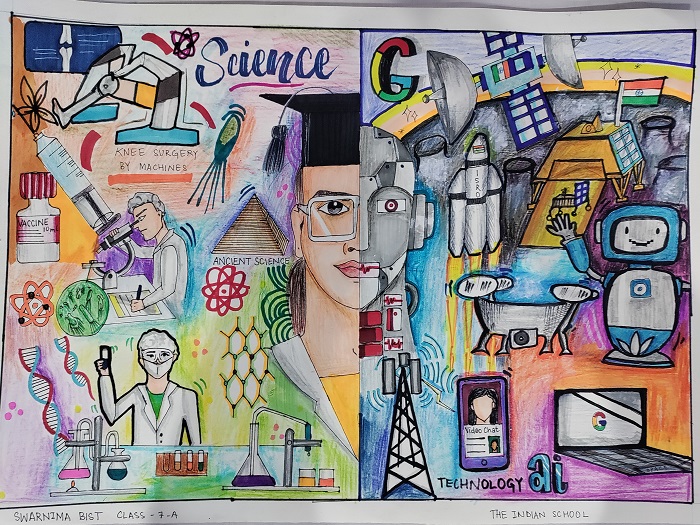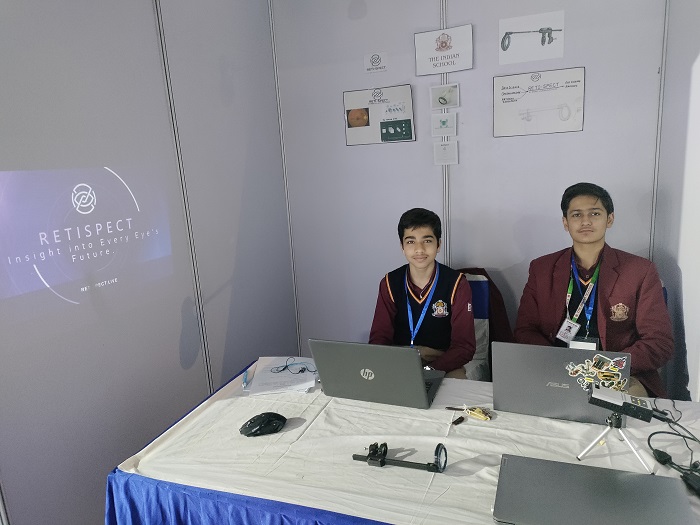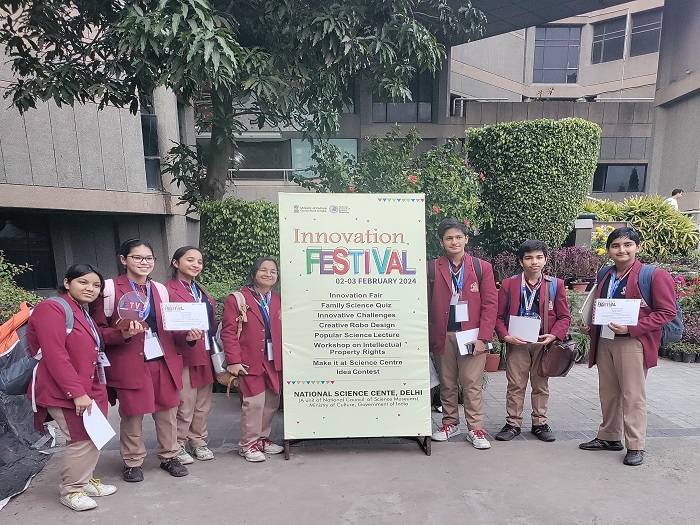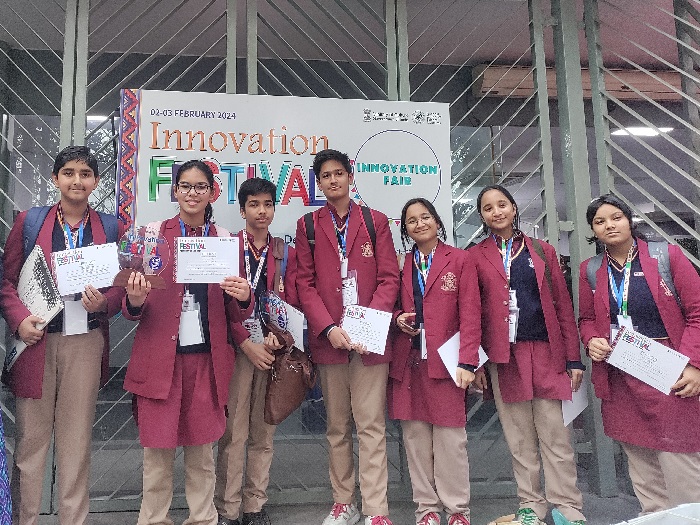Innovation Fair at the National Science Centre
Acknowledging the importance of innovation and the role of experimentation and scientific methods in fostering logical thinking, the National Science Centre, Delhi, hosted the Innovation Festival on 2nd and 3rd February 2024. The festival aimed to cultivate a passion and aptitude for science and technology, providing a distinct platform for innovative and creative minds. For the fair, the National Science Centre received 53 entries, of which 23 were shortlisted to participate.
Ms Monika accompanied the students on February 2, and Ms P. Yogeshwari on February 3. The students took part in two events named ‘Innovation Fair’ and ‘Make It’ at the Science Centre. These events provided an opportunity to showcase their innovative work and products.
The chief guest was Prof Manoranjan Parida, professor of civil engineering at IIT Roorkee. He has also been director of CSIR-Central Road Research Institute as also worked on an Imprint Research Project titled "Propagation and Mitigation Model of Mixed Traffic Noise for Planning Mid-Sized Indian Cities." An innovative contribution by him was the Design and Development of Noise Barrier for Flyovers in Delhi.
For the 'Make It at the Science Centre' art event, Mansha Dwivedi (XI A), Tanmay Virmani (VII C), and Swarnima (VII A) exhibited their illustrations. Here, Swarnima (VII A) won the Second Prize for her pictorial representation of the nation’s recent technological and innovative achievements. She received a cash prize of 2000/- along with a trophy. Shaurya Fulfagar (IX C) and Vansh Sharma (IX C) received a cash prize of 3000/- and participation trophies for being shortlisted for the innovation fair.
In the 'Build from Scrap' event, Shiksha Dwivedi (IX C) and Bhavya Gupta (XI A) exhibited their model of pollination using scrap material. Shaurya Fulfagar (IX C) and Vansh Sharma (IX C) exhibited their project ‘RetiSpect.’
Its objective was to tackle a critical healthcare concern: accurately diagnosing prevalent eye diseases affecting millions globally. The app employs an AI model based on a convolutional neural network, trained on a dataset of over 4600+ images, with a projected accuracy of 92%.
All the exhibits were observed to be an enlightening experience that expanded students' understanding of innovation and how both simple and complex ideas can be applied in our daily lives. The creativity and ingenuity showcased at the Innovation Festival were truly inspiring.
















